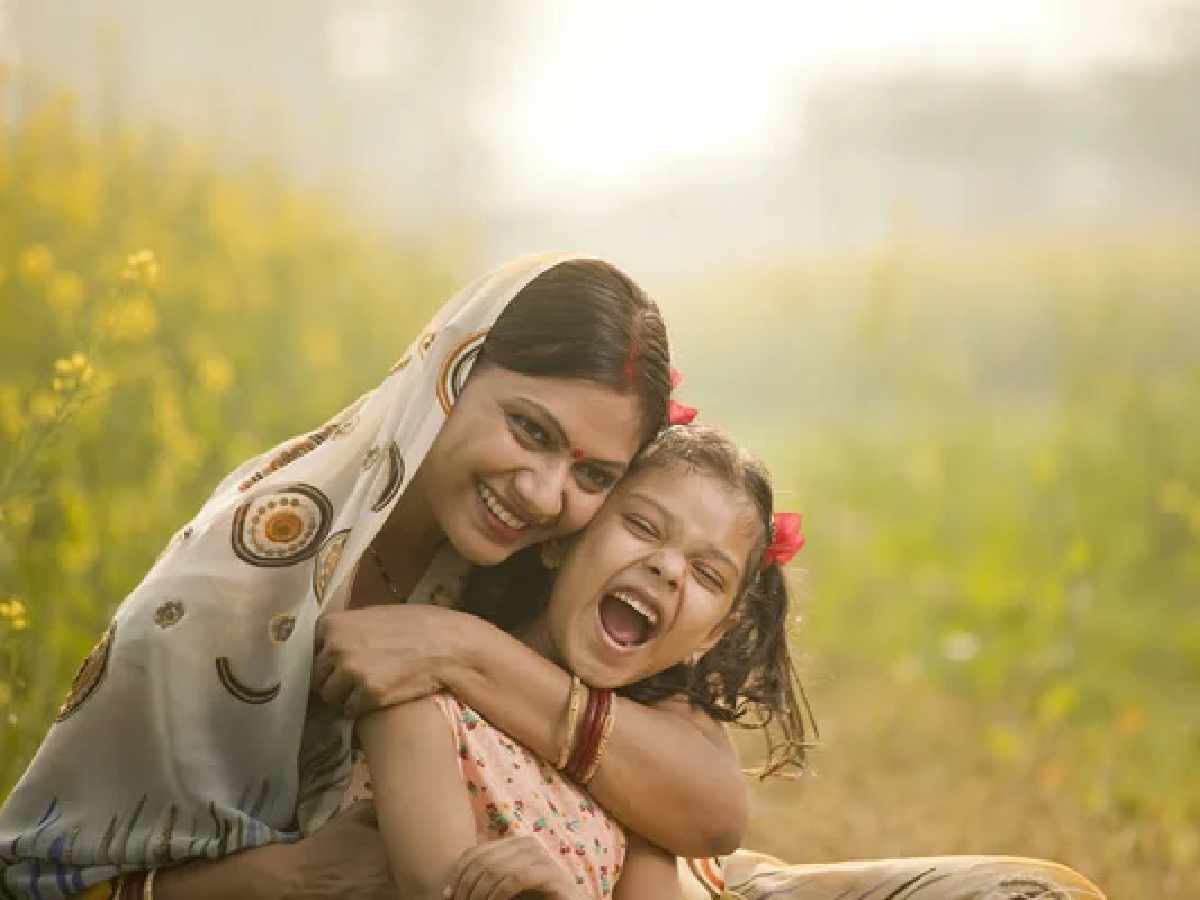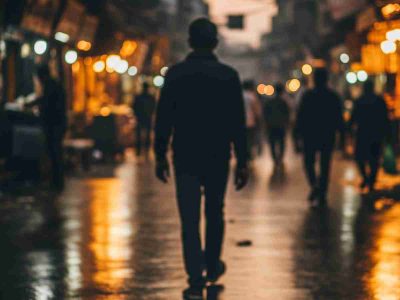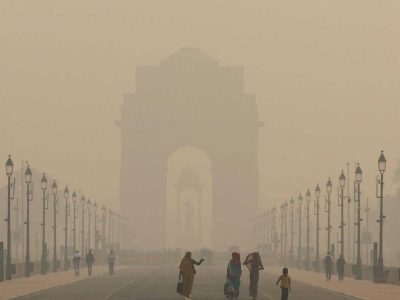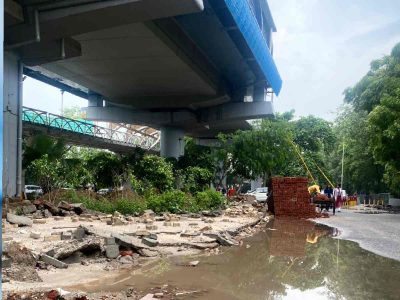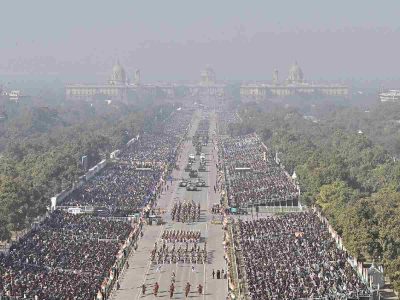Air pollution: As the Air Quality Index in the national capital deteriorates to “hazardous” levels, mothers across Delhi-NCR are increasingly worried about their children’s well-being.
To keep them safe, parents are restricting outdoor play, fearing the long-term effects of air pollution could be fatal. Concern over the annual air pollution crisis is mounting, leading many to consider relocating.
However, the prospect of leaving behind their identities and jobs presents a significant barrier. Starting anew in an unfamiliar city could take years before they achieve the stability and success they currently enjoy.
Bhavreen Kandhari describes the situation in Delhi as a “smoke chamber,” painting a dire picture of air pollution’s impact on residents, particularly children. Her words highlight the severe health repercussions families face daily as the city grapples with worsening air quality. Air pollution in Delhi is not just an environmental issue; it’s a profound public health crisis. As she notes, “every third child in Delhi has damaged lungs.”
‘Warrior Moms’ is a collective of mothers across India dedicated to advocating for their children’s right to clean air. To combat the surging air pollution in Delhi, mothers from all economic backgrounds are step ping forward to take action.
Groups like ‘Warrior Moms’ are essential voices, representing families directly impacted by pollution and advocating for cleaner, safer air.
Yet, despite these efforts, the situation remains challenging, exacerbated by industrial emissions, vehicle pollution, ineffective waste management, construction dust, and more. Improving air quality in Delhi will likely require systemic changes to enforce stricter pollution controls, enhance urban planning, and foster broader regional cooperation. However, until meaningful changes are implemented, families in Delhi will continue to bear the burden of this environmental crisis, facing the associated health toll.
“These concerned parents are uniting to raise awareness about the sources and impacts of air pollution. They educate and empower communities—from local neighbourhoods to cities and villages nationwide—encouraging action and engaging with policymakers to strengthen regulations for cleaner, healthier air,” Bhavreen stated.
Also read: Those who believe in democratic values are rooting for Kamala Harris, says Sharon Lowen
“Over 1,500 women from 93 cities and villages across 13 states in India have formed a powerful collective to combat air pollution. These mothers support one another local ly and globally, united in their demand for clean air for their children and committed to making it a reality,” she added.
Dr Mehak Segan from Noida shared her struggles with air pollution, stating, “As a public health worker, I witness the harm this pollution inflicts on our children, and unfortunately, the situation isn’t improving. My children, aged one and five, love being active outdoors, playing sports, and enjoying the park. Yet, I often have to keep them indoors for their health, which is difficult for any child to understand.”
“It’s particularly disheartening to see studies indicating that our children could lose more than a decade of their lives due to long-term expo sure to this air. Even if we wanted to relocate for their health, leaving behind our home and jobs to start anew isn’t feasible. That’s why we, as mothers, are uniting to advocate for policies that will help restore clean air for our children,” she added.
Purnima Raghunath, a resident of Vasant Kunj, stated, “In Delhi-NCR, simply breathing makes everyone equivalent to a smoker, averaging ten cigarettes a day! This applies even to newborns and embryos. The long-term impact on our children’s health will be monumental!”
“As a mother and documentary filmmaker, I needed to transform this fear into action. I am using my skills to document the challenges of urban mobility in Delhi-NCR, so other mothers and parents can adopt a similar approach. Together, we can drive the much-needed change,” Purnima explained.
Nibha Devi, a daily wage worker from Andrews Ganj, shared her struggles: “I work every day to make ends meet. When the government announces school holidays due to pollution, our children are still exposed to the same air, and it can be even worse outside than at school.”
“Our home is small and located right next to a busy road and flyover, so the pollution is intense. This sea son, we’ve had to take our children to the doctor repeatedly, losing many hours of work and income in the process. The government should consider how these decisions impact families like ours, who have no choice but to face this pol luted air daily,” she said.
Jaya Singh, a resident of Janakpuri, shared, “Rohan, my 8-year-old, had never needed a nebuliser until a few years ago. Last year, when the air quality index (AQI) plummeted due to smog and pollution, his chronic cough escalated to severe breathing difficulties. We rushed him to the hospital multiple times, and the doctor eventually prescribed a nebuliser. Now, he uses it twice daily, especially during peak pollution months. We used to think only the elderly needed such treatments, but now it’s common in homes. He can’t go outside without it; his body just can’t handle the polluted air anymore.”
Ruuchi Sharma, a Dwarka resident, noted, “I’ve witnessed the subtle ways pollution has infiltrated our lives. My kids often cough or struggle to breathe, especially on days with poor AQI. As a mother, this constant worry about their health is hard to ignore. I check the AQI daily, limit outdoor activities, and invest in indoor air purifiers to mitigate the effects. But deep down, I know these are just temporary fixes to a much larger problem.”
“Balancing parenthood with advocacy isn’t easy, but the stakes are too high to stay silent. Alongside ‘Warrior Moms’, I actively lodge complaints whenever I notice severe air quality issues. Whether it’s smoke from illegal waste burning, emissions from a nearby factory, or construction dust, I make it a point to voice my concerns to the relevant authorities. I encourage others to do the same. Air pollution is a systemic problem that requires collective action,” Ruuchi emphasised.
Poonam Madan, a resident of Vasant Kunj, reflected, “The memories of crisp, fragrant Octobers from my childhood in Delhi have faded under a cloud of pollution, and the health effects are glaringly real. Struggling with sore throats, irritated eyes, and allergies due to the noxious air has become the norm for me and my adult daughters. While our cities continue to lose the trees that once purified our air, a small but determined community is fighting to protect what remains.”
“We’ve organised petitions, lodged hundreds of complaints, and even stood between chainsaws and trees to prevent unnecessary cutting—especially for misguided ‘pruning’ that strips them of their health. We’re pushing back against developers who ignore the choking roots beneath concretized side walks. While many choose to ignore us, we understand the cost to future generations is too great to remain silent. It’s time for every parent and citizen to become a warrior for our air, our trees, and our children’s futures,” she stated.
Nazm, a waste worker near Bhalswa landfill, shared, “I spend most of my day collecting and segregating waste while my family breathes in toxic air. For years, we didn’t realise how deeply this would affect our health or how much our children would suffer from the pollution around us. Ironically, people have time to drive cars and shop in malls, yet many can’t spare a moment to properly segregate their waste—leaving us to deal with mountains of mixed garbage in landfills where we live and work. To protect our families, we teach mothers and children to wear masks, but it’s challenging in the heat and difficult conditions we face daily. Real change requires every household and office to separate waste, with government support to ensure it happens. Clean air shouldn’t be a privilege for the wealthy; it’s essential for a healthy future for all our children.”
Also read: RML Hospital’s pollution clinic sees surge in cases amid spike in bad air
As a mother of two children— aged 15 and 7—I never imagined raising them in a place where the air itself would become our enemy, said Sunita B, a resident of Sarita Vihar. “We live under the shadow of an incinerator in the world’s most polluted capital, a facility branded as a “waste-to-energy” solution but feels more like a toxic monster unleashed upon our community. This plant symbolises neglect and a lack of proper waste management, releasing pollution into an already suffocating city. My daughter now spends much of the year relying on a nebuliser to breathe, while my son depends on it during the winter months. It breaks my heart; when I was their age, we didn’t even know what a nebuliser was.”
“We are paying the price for failures that are not ours. We are the ones suffering—especially our children, who endure health risks no child should face. As mothers, we refuse to stay silent. We write com plaints, sign petitions, and protest against the expansion of this plant because our children’s future should never be the cost of someone else’s inaction. We won’t stop until our voices are heard and our children can breathe without fear,” she added.

